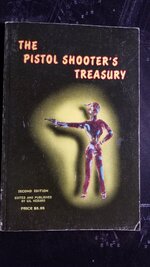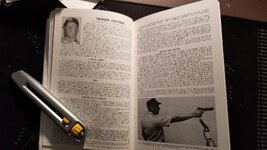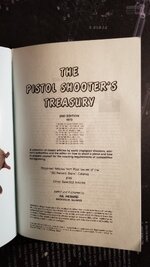- Messages
- 337
- Reactions
- 968



Found this one a while back, it's a compendium of articles taken from the "Gil Habard Guns Catalog", wrtten by a bunch of expert match shooters from the ole days. It's pretty edifying. And entertaining. Brought back memories of my teen years in the 80's learning how to shoot from the Sheriff's deputies Colt Python's in the explorer program I was in. A lot of good, forgotten basics in this gem.. The last time I was at the range I ran a few mags single hand from low ready @ 25 yards..fun stuff!











